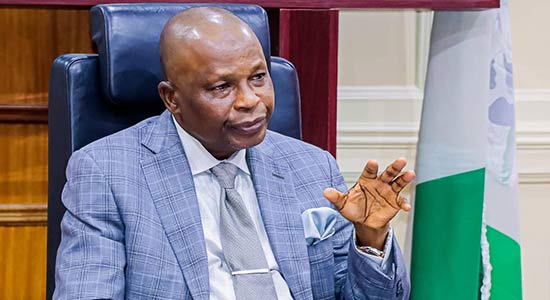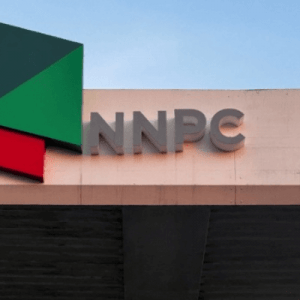Governor Babajide Sanwo-Olu of Lagos State, Attorney-General of the Federation and Minister of Justice, Lateef Fagbemi (SAN), and President of Nigerian Bar Association, Mazi Afam Osigwe (SAN), have called for urgent reforms to strengthen arbitration and alternative dispute resolution (ADR) across Africa.
They warned that without robust ADR frameworks, the continent risked losing billions of dollars in potential economic value.
The call was made yesterday at the 46th NICArb International Arbitration and ADR Conference held at the Civic Centre, Victoria Island, Lagos.

This year’s theme, “Strengthening Institutional Arbitration and ADR in Africa: Charting a New Path,” reflected the urgent need for credible, efficient, and trusted dispute resolution systems on the continent.
Sanwo-Olu, represented by Lagos State Attorney-General, Lawal Pedro (SAN), said Africa stood at a defining moment as economies deepened their integration and investments grew.
He questioned why African disputes were often sent to foreign jurisdictions despite the continent’s wealth of skilled arbitrators, reputable institutions, and modern facilities.
“For decades, Africa has been a centre of global investment, yet the mechanisms for resolving the disputes arising from these transactions are not always reflected on our continent,” Sanwo-Olu said.
He added, “Investors want predictability, fairness, efficiency, and credibility. African disputes can be resolved at home with dignity, fairness, and global standards.”
He highlighted Lagos State’s deliberate efforts to place ADR at the core of commercial conflict resolution, citing the Lagos Court of Arbitration and the Lagos Court of Commercial Contracts as models of institutional strength, which he described as “the currency of global trust”.
Fagbemi described Africa as being on the brink of transformation. He emphasised that sophisticated businesses required strong dispute-resolution mechanisms, particularly under the African Continental Free Trade Area (AfCFTA).
“Arbitration and ADR are engines of stability and the foundation for inter-regional trade,” Fagbemi said.
He stated that Africa still faced legislative inconsistencies, concerns about neutrality, limited institutional capacity, and enforcement weaknesses, but described these challenges as opportunities for reform rather than signs of failure.
Fagbemi announced that his office was collaborating with the National Judicial Council to introduce new practice directions aimed at streamlining arbitration-related cases, reducing delays, reinforcing party autonomy, and strengthening the finality of arbitral awards.
He also revealed that the federal government will soon commence work on a National Alternative Dispute Resolution Policy to harmonise ADR standards, accredit practitioners, and promote sector-specific dispute mechanisms in industries such as oil and gas, construction, and finance.
“Government will lead by example,” Fagbemi said, pledging that ministries and agencies will adopt ADR clauses, train officers, and demonstrate the discipline necessary to reassure investors.
He also promised expanded judicial training, mentorship programmes for young arbitrators, and increased opportunities for women, stressing that Africa must not only participate in global arbitration but lead it.
Osigwe warned that Nigeria risked losing its credibility as a commercial hub unless lawyers, arbitrators, and institutions took urgent steps to strengthen decisional efficiency and reduce reliance on prolonged court litigation.
“Long-running cases – some lasting more than a decade – are psychologically and financially devastating for litigants,” Osigwe said.
He criticised the evolving culture of arbitration, which he described as drifting from its core values of speed, affordability, and flexibility.
According to him, “Many approach arbitration with the same adversarial mind-set as litigation, which defeats its purpose.
“The Arbitration and Mediation Act 2023 provides a modern framework, but its success depends on how responsibly we use it.”
Osigwe urged lawyers to commit to resolving more cases through ADR, stressing the need for Nigeria to retain commercial disputes locally rather than losing huge revenue to foreign jurisdictions.
“We must make Nigeria a destination for arbitration,” he said.
In his welcome address, Professor Fabian Ajogwu, SAN, called for a continent-wide overhaul of arbitration and ADR systems, insisting that Africa must take ownership of its destiny in commercial dispute resolution.
Ajogwu emphasised that strong arbitration was built on independent institutions, coherent legislation, and supportive judiciaries. He warned that fragmented mechanisms, rules without culture, and institutions without predictable governance continued to hamper Africa’s progress.
“Africa does not lack expertise; what it seeks is coherence,” Ajogwu said. “We must move from fragmented excellence to institutional cohesion if we are to lead in global arbitration,” he added.
The conference brought together legal experts, policymakers, and arbitrators from across Africa to chart a new path for dispute resolution. It highlighted both the progress made in cities, such as Kigali, Cairo, Lagos, Nairobi, Abidjan, and Johannesburg, and the work still required to establish Africa as a credible and trusted hub for arbitration.
Stay ahead with the latest updates!
Join The Podium Media on WhatsApp for real-time news alerts, breaking stories, and exclusive content delivered straight to your phone. Don’t miss a headline — subscribe now!
Chat with Us on WhatsApp








